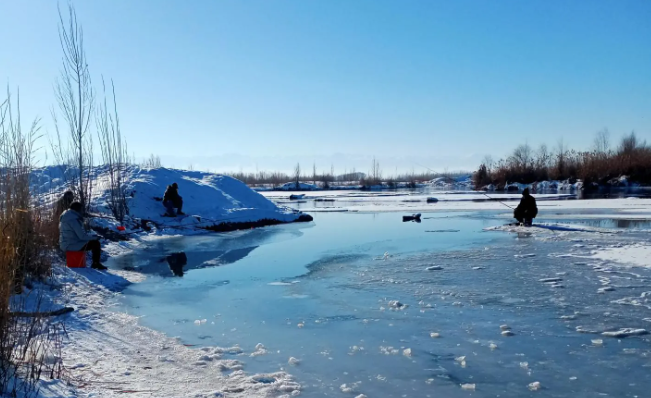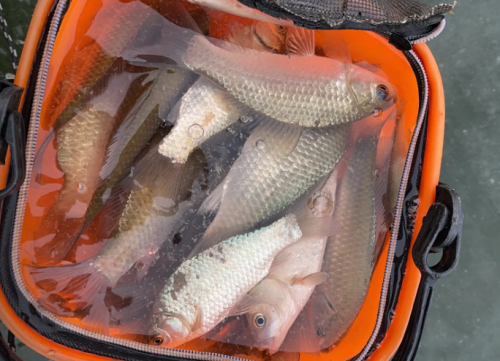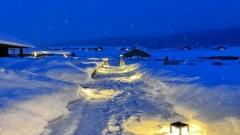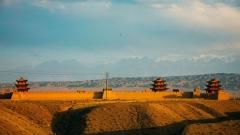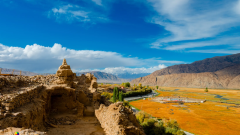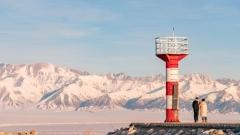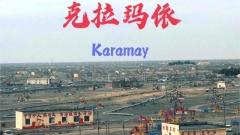When winter blankets northern Xinjiang in deep snow and ice, the region’s frozen lakes come alive with one of its oldest and most fascinating traditions—ice fishing. In places like Fuyun, Altay, and Kanas, local Kazakh and Mongolian herders head out onto frozen lakes to cut through thick ice and haul out fish using time-honored techniques. For travelers, joining this ancient winter ritual isn’t just about fishing—it’s about experiencing the spirit, culture, and resilience of Xinjiang’s northern people.
The Origins of Ice Fishing in Xinjiang
Ice fishing in Xinjiang has been practiced for centuries, deeply rooted in the lifestyle of Kazakh nomads who relied on frozen lakes to provide food during harsh winters. In the far north near the Altay Mountains, where winter can last up to six months, people developed sophisticated methods for catching fish under layers of ice thicker than half a meter.
Historically, this wasn’t just a means of survival—it was also a communal event. Families and neighbors would gather around the frozen lakes, light fires, and celebrate the bounty of nature. Today, ice fishing has become a symbol of local pride and an attraction for travelers seeking authentic winter experiences.
Best Places to Try Ice Fishing in Northern Xinjiang
Altay Prefecture – The Heart of Ice Fishing Culture
The Altay region, bordering Mongolia and Russia, is the cradle of Xinjiang’s ice fishing heritage. Its numerous lakes—fed by mountain rivers—freeze solid by late November, creating ideal conditions.
-
Fuhai County (Burqin Lake Area): Known for its grand Ice Fishing Festival in December, where locals perform traditional dances, horse racing, and large-scale group fishing.
-
Kanas and Hemu: Frozen alpine lakes surrounded by snow-covered pine forests create a magical backdrop. You can watch or join locals as they cut through thick ice with hand tools and nets.
-
Keluo Lake: Famous for its pure waters and abundant fish, Keluo Lake offers smaller, more intimate fishing experiences for travelers who prefer quiet moments with nature.
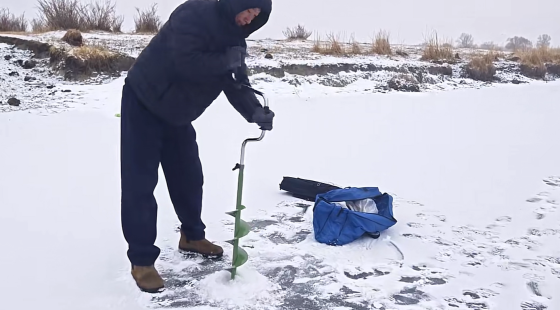
Fuyun County – The Ancient Ice Fishing Tradition
Fuyun’s Irtysh River and nearby lakes are among the oldest ice fishing grounds in Xinjiang. The locals here still follow age-old rituals, such as offering milk or tea to the lake spirits before fishing begins.
Travel Tip:
Local tourism boards often organize guided ice fishing tours between December and February. They provide insulated tents, fishing gear, and warm local meals on the ice.
What to Expect When You Go Ice Fishing
Cutting the Ice
The experience begins with locals drilling or sawing large holes into the ice, sometimes up to 70 centimeters thick. Watching this process is mesmerizing—the rhythmic sound of ice cracking, the steam from people’s breath, and the glitter of sunlight on snow all combine into an unforgettable scene.
Setting the Nets
In traditional methods, long fishing nets are pulled under the ice through several holes. This technique, requiring teamwork and skill, has been passed down through generations.
Pulling in the Catch
When the nets are drawn, the excitement begins. Fish like pike, carp, and perch wriggle out of the icy water, sparkling in the sun. Locals cheer, and visitors can even help sort or clean the fish.
Cooking and Sharing the Meal
No ice fishing trip is complete without tasting the day’s catch. Some groups cook fresh fish right on the ice, using portable stoves to make fish soup or grilled fillets, often seasoned simply with salt and local herbs. It’s hearty, warming, and perfectly suited to the -20°C air.
Cultural Significance and Local Celebrations
Ice fishing is more than a sport—it’s a winter festival. In places like Fuhai and Altay, the Winter Ice Fishing Festival (usually in late December) attracts thousands of visitors.
Activities include:
-
Opening Ceremony: Local elders perform blessing rituals for safety and good fortune.
-
Horse Racing & Wrestling: Traditional Kazakh sports that showcase strength and endurance.
-
Folk Music and Dance: Performances featuring dombra (a Kazakh string instrument) and colorful costumes.
-
Market Stalls: Selling dried fish, local honey, fur hats, and hand-carved souvenirs.
These festivals blend ancient traditions with modern tourism, creating a cultural spectacle that connects visitors to Xinjiang’s nomadic heritage.
When and How to Go Ice Fishing
Best Time:
Mid-December to late February is the ideal season. During this period, lake ice reaches its safest thickness, and organized tours operate regularly.
How to Get There:
-
By Air: Fly to Altay City or Burqin Kanas Airport from Urumqi.
-
By Train: High-speed trains now connect Urumqi and Altay (around 8 hours).
-
By Car: Self-driving offers flexibility, but roads can be icy—4WD is recommended.
What to Bring:
-
Thermal layers, windproof outerwear, snow boots, gloves, and a hat.
-
Sunglasses (sunlight on snow can be dazzling).
-
Camera or drone for incredible aerial shots of the icy expanse.
-
Hand warmers and a thermos of hot tea—it’s cold, but the air is incredibly crisp and clean.
Responsible and Safe Ice Fishing
While ice fishing is exciting, safety and respect for local traditions come first.
-
Always go with a local guide who knows the ice thickness and safe areas.
-
Avoid standing near active fishing holes or thin ice zones.
-
Respect local customs — for example, do not throw waste on the ice or disturb ritual offerings.
-
Support community-led tours that ensure the activity remains sustainable and culturally respectful.
Beyond Ice Fishing: Winter Adventures in Northern Xinjiang
If you have extra time, combine ice fishing with other winter highlights:
-
Skiing in Altay: Visit China’s oldest ski region, where locals still ski using wooden boards.
-
Snow Villages of Hemu: Capture the fairytale scene of wooden cabins blanketed in snow.
-
Hot Springs in Fuyun or Altay: Relax in natural thermal pools after a day on the ice.
Conclusion
Ice fishing in northern Xinjiang is more than an outdoor adventure—it’s a journey into the heart of the region’s culture and history. As you watch locals pull shimmering fish from the icy depths, you’ll witness a way of life that has endured for centuries. Between the crisp air, vast snowy landscapes, and warmth of Kazakh hospitality, this experience offers an unforgettable window into Xinjiang’s authentic winter spirit.



